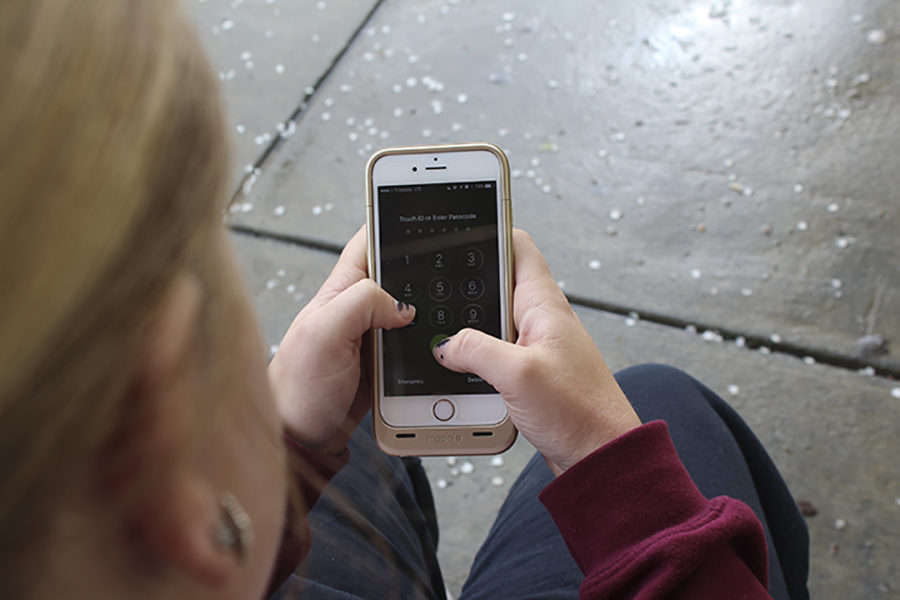Invasive cellphone search bill threatens California students
California state assemblyman Jim Cooper introduced bill AB 165 Jan. 3, which would allow schools to demand that students hand over their devices in situations such as bullying, scandals and other school offenses. Teenagers giving their cellphones to government officials – not just local police, but deans, principals and campus police, too. This would consequently give these officials the right to search through all electronic communications and obtain access to private social media accounts without a warrant.
This proposal is invasive to a person’s privacy and sets a dangerous precedent. This piece of legislation aims to give school administrators the right to search students’ phones without first obtaining a warrant or establishing probable cause.
Trampling over students right to protect their information and to have privacy on their personal device is an abuse of power. Public schools already have more influence on their students’ lives than they should, and this bill would push matters over the edge.
Proponents of the bill say it will help schools combat online bullying and harassment. However, under the current law, California Electronic Communications Privacy Act, there are more than sufficient means for schools to deal with such cases. In the event that a case has reached the level of a crime or emergency, a school can get law enforcement involved and obtain a warrant. When a student is being harassed or bullied, they also have the right to voluntarily show the communication from their phone to a school official or law enforcement officer.
Cyberbullying is an issue — but violating students’ rights to privacy is not the solution. Technology has raised the awareness of bullying and can also be used to combat it. We need to embrace these advancements in technology instead of using them to allow school administrators to “bully” their students in return. The potential for abuse under this new bill clearly outweighs its benefits.
Phones are the new diaries. They’re filled with personal thoughts, information, photos and private conversations. Most people have passcodes for a reason — some things are for their eyes only, and they would feel exposed and vulnerable if that were to change.
If schools cross these boundaries, then what’s the limit on how far they can go? Will they be able to violate other rights that are protected under due process of the law?
I see a strong parallel between this bill and when the federal government tried to pressure Apple into building a backdoor into their encryption. After the San Bernardino shooting happened, the FBI wanted to access the encrypted messages on the suspects’ iPhones. Apple, seeing the risks this would have created, denied their request. The precedent of giving authorities, be it FBI agents or school administrators, access to citizens’ private lives is dangerous and should not be allowed.
Unless you have a valid search warrant that says you have permission, back away. No one is touching my phone.
by EMMA KACHMAR








![On the stage, Daniel Bozinovski and Rachel Treto play their part as Tom and Hannah in the show “The Cast List”. The show was about a group of students who were told about their cast list for the play “Romeo and Juliet.” The Theater I students were in preparation for their first showcase of the year. Students went over their lines during all of their class for the past two months. “[We put in] a lot of rehearsal, practicing lines, making sure you have everything memorized and making sure you are ready to go in and not forget anything,” Nathan Weeks said. Photo by Megan Kubas.](https://www.whitneyupdate.com/wp-content/uploads/2024/05/IMG_4085-600x396.jpg)
